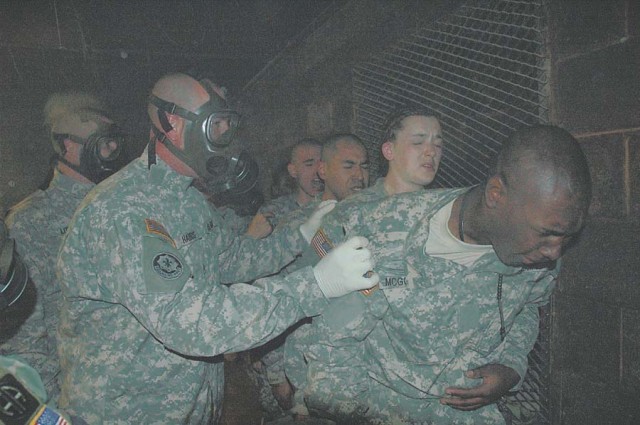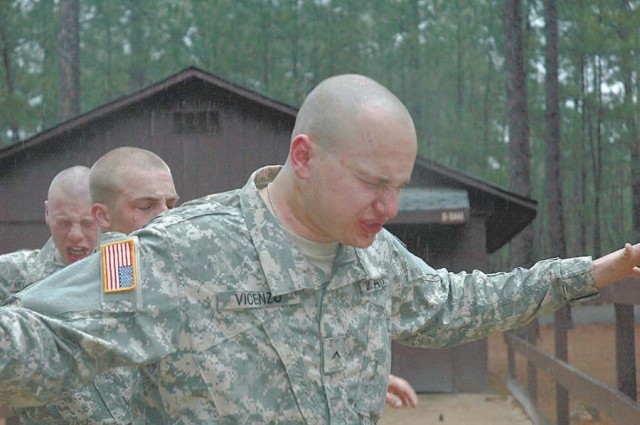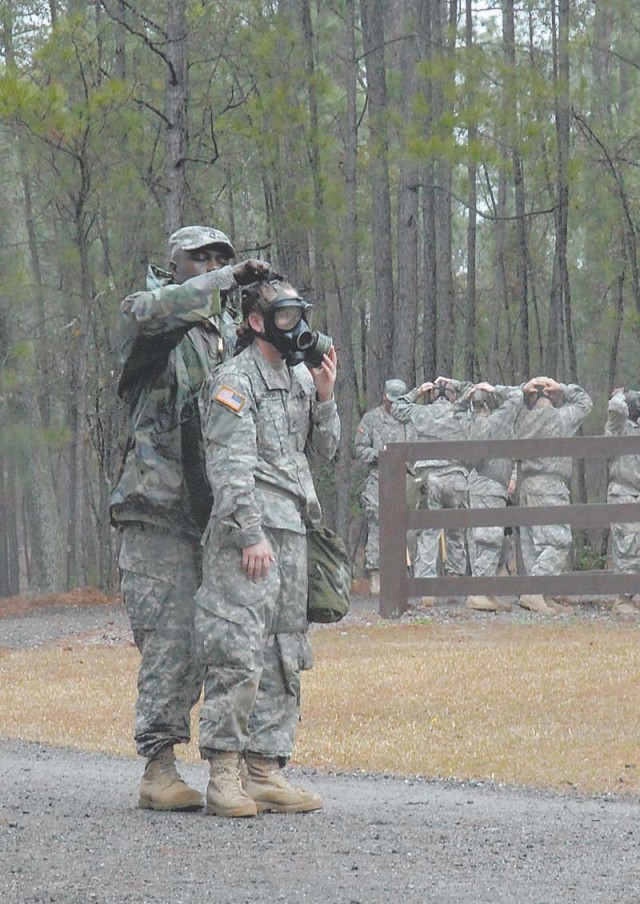Many Soldiers will say their most vivid memory of Basic Combat Training was the moment they pulled off their protective mask and felt the sting of reality in the gas chamber.
Soldiers from Company A, 2nd Battalion, 60th Infantry Regiment recently got their turn in Fort Jackson's Nuclear, Biological, Chemical chamber. On a rainy day in their third week of BCT, they completed the NBC training.
"The purpose of NBC is for them to get familiar with their equipment, and to know that if there is ever a severe situation, that they'll be able to use their equipment properly," said Capt. Jason Murray, commander of Co. A, 2nd Bn., 60th Inf. Reg. "They learn how to seal and clear the mask properly."
A day at the NBC chamber begins with classroom instruction. Range cadre teach the trainees about the equipment they will be using. They break for lunch, then line up for the chamber.
The chamber itself is a small building -- dark, cold and empty, except for the Soldiers who line the walls in single file. The line wraps around the walls with Soldiers in protective masks, except the five standing by the exit door who take their masks off when they are instructed to by drill sergeants.
"We try to teach them to learn how to seal it properly and clear it. If you don't then any little hole that might be in the mask will let the gas inside, so we have to make sure and watch out for that," Murray said. "There's a lot of gasses out there that other countries could use against us that you really can't smell or you won't even know is there, so that's why it's important that you always have your mask sealed properly."
Pvt. Steffen Wittbrodt, from Marlette, Mich., said his drill sergeants actually helped keep them calm before they went in.
"It was kind of different, nothing like anything I've ever felt before. (It was) scary, a little bit," he said. "I was about the 10th one back and one of the kids was freaking out because his mask wasn't sealed, so I felt fortunate that my mask worked. It wasn't too bad though. I just kept calm."
Fellow BCT Soldier Pvt. Samuel Whaley from Ogden, Utah, agreed that NBC training can be nerve-wracking, but is worthwhile.
"It was interesting, to say the least," he said. "I would definitely try to never do it again. It hurt, but it wasn't too bad. It's good training. I think it's really worth it. It kind of gives us an idea of what to look for if we were taken POW or something. It made me very confident in my equipment. I think it will be my biggest memory from basic combat training."
Whaley said when he was in the chamber, he kept thinking about when he could get out.
"I was thinking to myself that if I just tried to say the whole Soldier's Creed in one breath that I'd just be able to get out, but I was wrong," he said. "I took my mask off, I took a big breath and I just started coughing. I couldn't really breathe."








Social Sharing